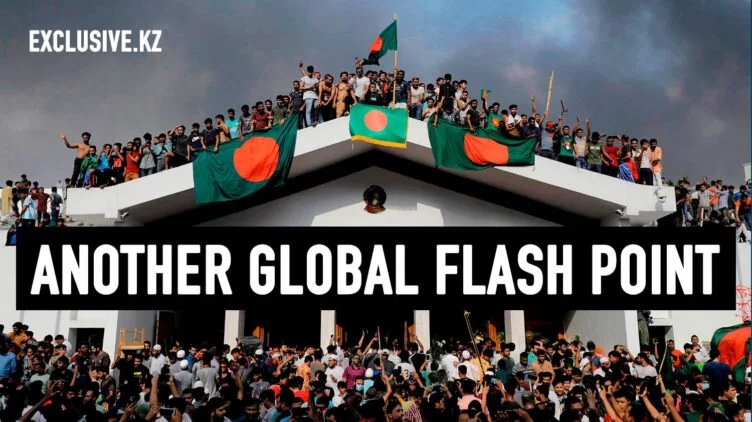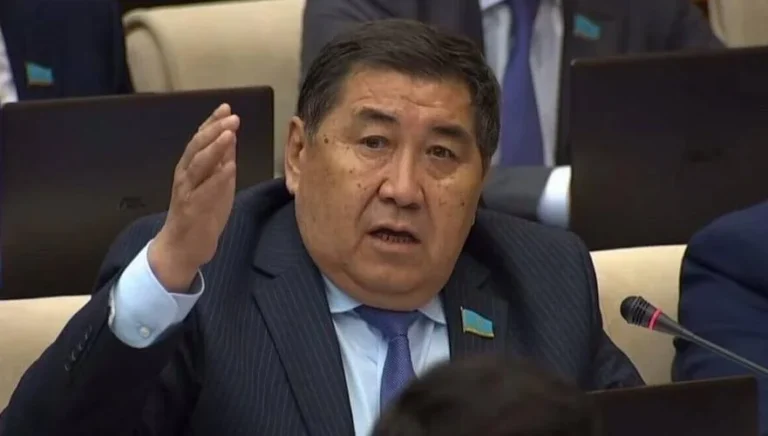Bangladesh’s Descent into Islamist Violence

In August, popular protests – and a harsh government crackdown – culminated in the military-backed ouster of Bangladeshi Prime Minister Sheikh Hasina, who lurched toward authoritarianism. But far from ushering in a democratic transition, the regime change has plunged Bangladesh into deeper turmoil, with mounting human-rights abuses and lawlessness by ascendant Islamist groups threatening to turn the country into yet another global flash point.
Hasina may have forsaken her democratic credentials once in power – in 1990, six years before she was first elected prime minister, she led the pro-democracy uprising that toppled Bangladesh’s military ruler – but the “iron lady” also kept both the powerful military and Islamist movements in check.
As South Asia has seen firsthand, military-backed regimes tend to crush anti-government protests, whereas militaries with unfulfilled ambitions might facilitate violent unrest to create a pretext to swoop in, seize power, and “restore order.” Bangladesh’s military refused to enforce a lockdown even as protesters rampaged through the streets, and as soon as Hasina was gone, it installed an interim administration. Tellingly, the military packed her off to India even before she could formally resign.
To be sure, the interim regime is led by Muhammad Yunus, a Nobel Peace Prize laureate, who was selected with the support of the student-led, Islamist-backed protest movement. But the 84-year-old Yunus has become little more than the civilian face of what is effectively military-mullah rule. And despite lacking constitutional legitimacy, the interim regime has offered no time frame for holding national elections.

Instead, the regime has overseen new curbs on press freedom, including “persistent attacks, ill-motivated lawsuits, and widespread harassment.” The credentials of 167 journalists have been revoked without explanation, and 129 journalists have been slapped with trumped-up murder, abduction, or assault charges. Scholars, lawyers, and others – anyone viewed as a critic of the regime – have also faced legal harassment. In a single week in October, more than 7,000 individuals were arrested, and political detainees have sometimes suffered physical assaults while in custody.
Last week, the regime trained its sights on a Hindu monk, who was arrested on charges of sedition after leading peaceful protests demanding protections for Bangladesh’s Hindu minority. But Hindus are under attack in Bangladesh. They have been the victims of jihadist mobs, which have also targeted other minorities, including Buddhists, Christians, indigenous people, and members of Islamic sects that Islamists consider heretical. At one anti-Hindu protest, Islamist marchers chanted, “Catch them and slaughter them.”
It is not difficult to see why Islamist violence is gaining ground. The interim regime has lifted bans on jihadist groups with links to terrorism and freed violence-glorifying Islamist leaders, including one who was convicted for the murder of a secularist blogger. Yunus’s administration also seeks to remove the reference to secularism in the constitution. All this appeasement has emboldened the Islamists, who have, at times, sought to enforce their own extreme vision of morality by hounding “immodestly” dressed women.
In the four months since Hasina’s ouster, hundreds of Bangladeshis have died as a result of violence. The situation has become so dire that even the secretary general of the Islamist-leaning Bangladesh Nationalist Party – the arch-rival of Hasina’s secular Awami League – has criticized the regime, lamenting that “people are shedding each other’s blood” on the streets and “newspaper offices are being set on fire.”
Meanwhile, Bangladesh’s once-booming economy is in shambles, with growth slowing, stocks sinking to their lowest level since the COVID-19 pandemic, and foreign debt spiraling upward. The ratings agency Moody’s recently downgraded its outlook for Bangladesh’s economy from “stable” to “negative,” and cut the country’s credit rating from B1 to B2, sending the country’s bonds deeper into junk territory. These problems will not go away, even if Bangladesh is granted the billions of dollars in bailouts it has requested.
Neighboring India is watching events in Bangladesh with considerable apprehension (and, when it comes to attacks on Hindus, significant anger). Fears are rising that Bangladesh will go the way of the dysfunctional Pakistan, a terrorist hub and key source of regional insecurity. If nothing else, India would face an influx of refugees. With millions of illegally settled Bangladeshis already living within India’s borders, this would present the country with an unpalatable choice between taking on more than it can handle and turning away people fleeing religious or political persecution.
Hasina’s ouster has thrown into sharp relief the divergence between India’s perspective and that of the United States, which has welcomed the regime change. This contrast can also be seen elsewhere in India’s immediate neighborhood. Under President Joe Biden, the US has aided the military-backed regime in Pakistan and provided “non-lethal” military aid to the rebels attempting to overthrow Myanmar’s military junta, even as cross-border arms flows fuel ethnic conflict in India’s Manipur state.
Fortunately, there is reason to think that US President-elect Donald Trump will rethink some of these stances – starting with America’s approach to Bangladesh. Trump has a long-standing aversion to America’s foreign commitments, and he is probably no fan of Yunus, who maintains close ties with prominent US Democrats and publicly lamented Trump’s 2016 victory over Hillary Clinton. Shortly before the recent US election, Trump posted: “I strongly condemn the barbaric violence against Hindus, Christians, and other minorities who are getting attacked and looted by mobs in Bangladesh, which remains in a total state of chaos.”
An unstable Bangladesh mired in radical Islamism and political violence has long been India’s geopolitical nightmare. One hopes that the US soon recognizes that this is not conducive to its interests either, and puts pressure on Bangladesh’s interim regime to protect minorities and restore stability. Beyond strengthening regional security, such a policy shift could go some way toward restoring America’s fraying relationship with India.
Copyright: Project Syndicate, 2024.





Все комментарии проходят предварительную модерацию редакцией и появляются не сразу.